After more than 40 years in Koreatown, the Dragon will serve its last plate of jajangmyeon
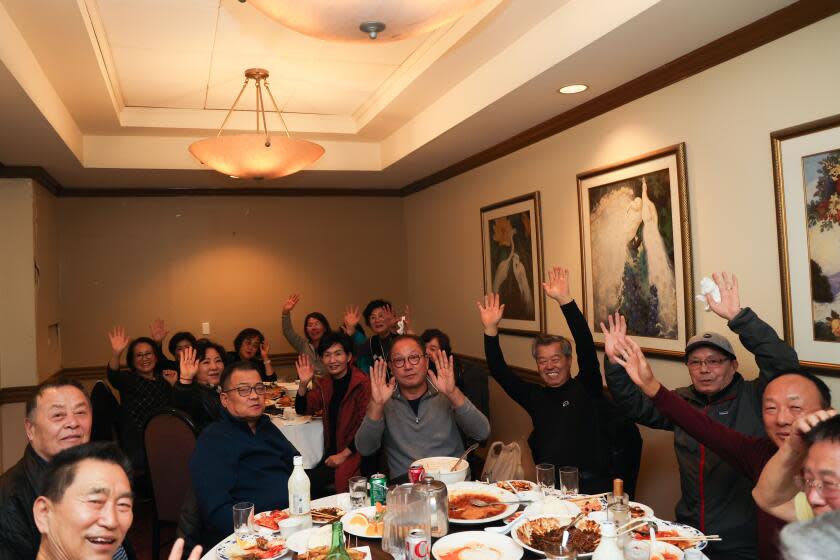
Song-tae Kim and 17 of his friends from church chattered boisterously, some fueled by soju, with the remnants of their dinner — black bean noodles and spicy seafood noodle soup — spread out in front of them.
For dessert, they passed around slices of Korean pear they had brought from home.
This was the group's last meal at the Dragon, a Korean-style Chinese restaurant in Koreatown. They have gathered there twice a month for two decades.
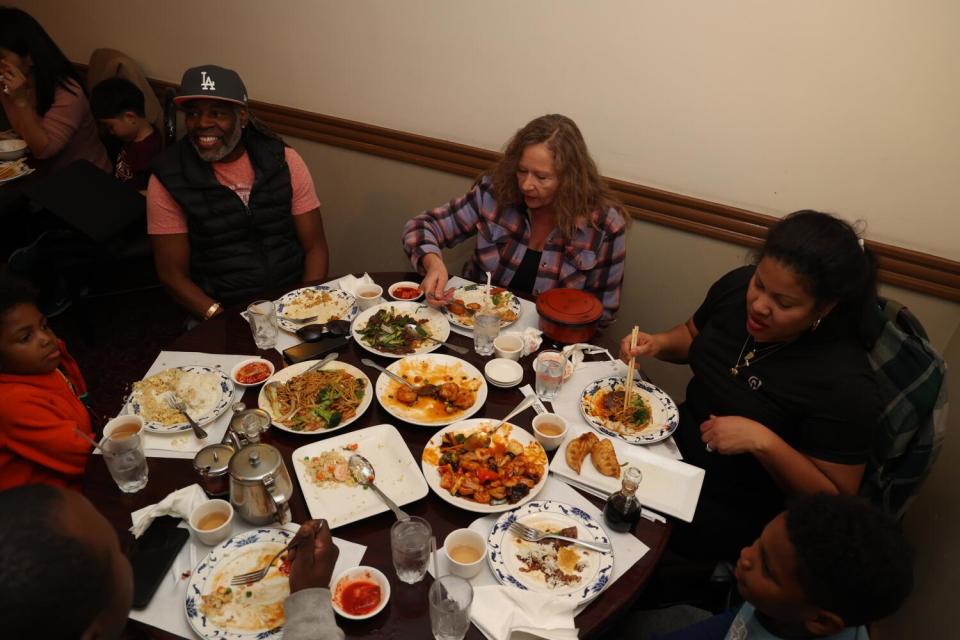
The Dragon is closing on Sunday after more than 40 years of serving dishes like jajangmyeon (the aforementioned black bean noodles), jjamppong (the seafood soup) and tangsuyuk (sweet and sour pork) to Korean Americans who converge from around Southern California.
With its private rooms and expansive banquet spaces, the Dragon has hosted countless first birthday parties, or doljanchi, and 80th birthdays, or palsun.
Besides the regular gatherings with his friends from St. Agnes Korean Catholic Church, Kim has enjoyed many family meals and birthdays at the Dragon, which is his "dangol," or go-to restaurant. A resident of Koreatown, Kim immigrated to the U.S. in 1978 and operated a sewing factory for 35 years.
“It’s such a pity,” said Kim, 74. “We gather here twice a month, and now we need to find another place, but there is no place like it.”
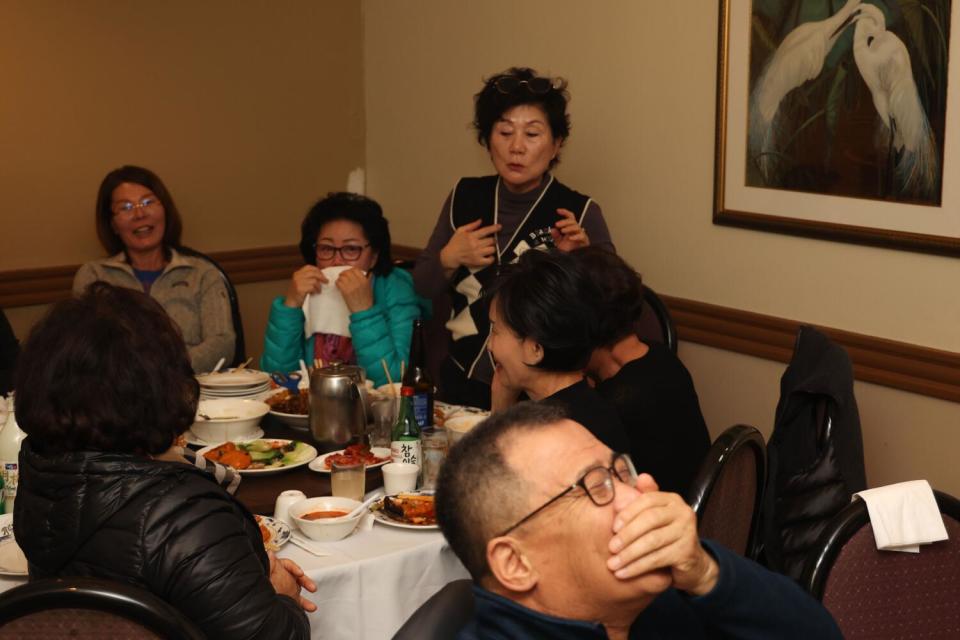
Deok-jeong Wang, who founded the restaurant and owns the property, plans to turn it into mixed-use affordable housing. But he said the driving force behind his decision isn't profit. The quality of the food is declining, he said, because it's hard to recruit chefs skilled in Korean-Chinese cuisine, which originated with Chinese immigrants in South Korea and puts a Korean twist on northern Chinese dishes.
For example, Chinese zhajiangmian is usually plainer than Korean-Chinese jajangmyeon, which is coated in a thick sauce of fermented black beans.
"In order to cook these very traditional dishes, you need someone who has those special skills, but there aren’t that many of those chefs anymore," said Wang. "A lot of chefs immigrated from Korea at the beginning, but generation after generation, young people aren’t doing it anymore.”
Like many who work in Korean-Chinese restaurants, Wang is of Chinese heritage and grew up in South Korea.
After arriving in the U.S. in 1971, Wang took any job he could find — bus boy, grocery deliverer, sous chef. In 1974, he opened a Korean-style Chinese restaurant that became the Dragon in 1980.
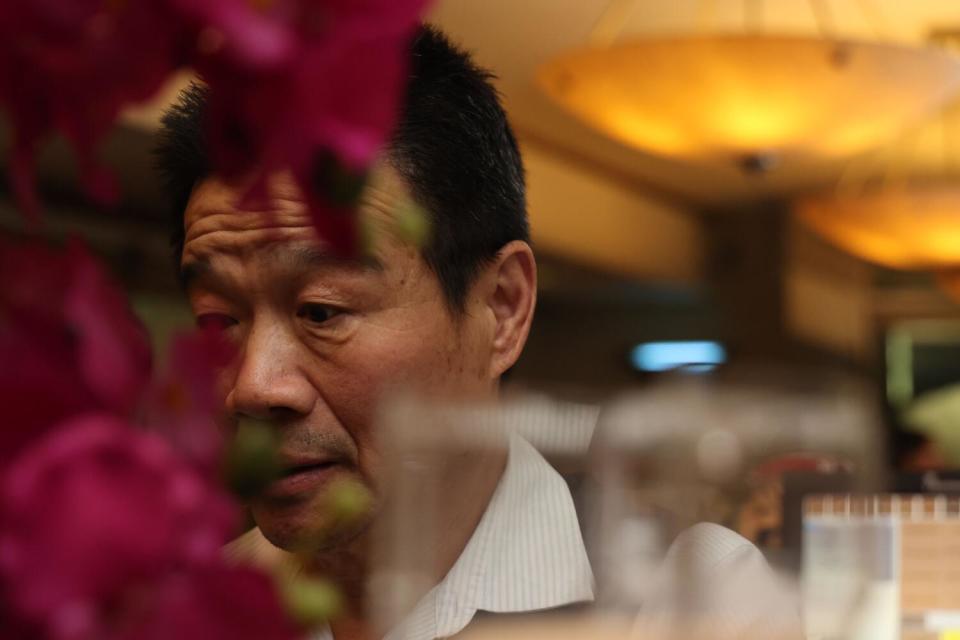
Wang sold the restaurant to In-seung Choi in 2016 while retaining ownership of the property on South Vermont Avenue north of Olympic Boulevard.
In recent years, density bonuses and other incentives have led to a surge in affordable housing development in Koreatown, one of the densest neighborhoods in Los Angeles.
Construction on the six-story, 90-unit building that will replace the Dragon is scheduled to begin in March, according to Choi.
Choi said he once owned four Korean-Chinese restaurants but sold them after grappling with the chef shortage.
House of Joy Chinese Restaurant in Glendale, which he sold in 2021, could get by with Latino chefs trained to cook the cuisine, because about half the customers aren't Korean, said Choi, who owns more than 10 restaurants in the L.A. area.
The Dragon also has its share of non-Korean customers, but Choi said that many of the Koreans "are of the older generation who are more picky and sensitive to changes in the food."
Younger chefs from South Korea don't want to move to L.A. because of the high cost of living and relatively low salaries, Choi added, which is also an issue for Korean restaurants serving traditional Korean food.
"The main chef, who has worked at the Dragon for over 30 years, is now over 70 years old, and it has been over a year since he said his wrists have been in pain," Choi said. "We knew it was about time to close shop."
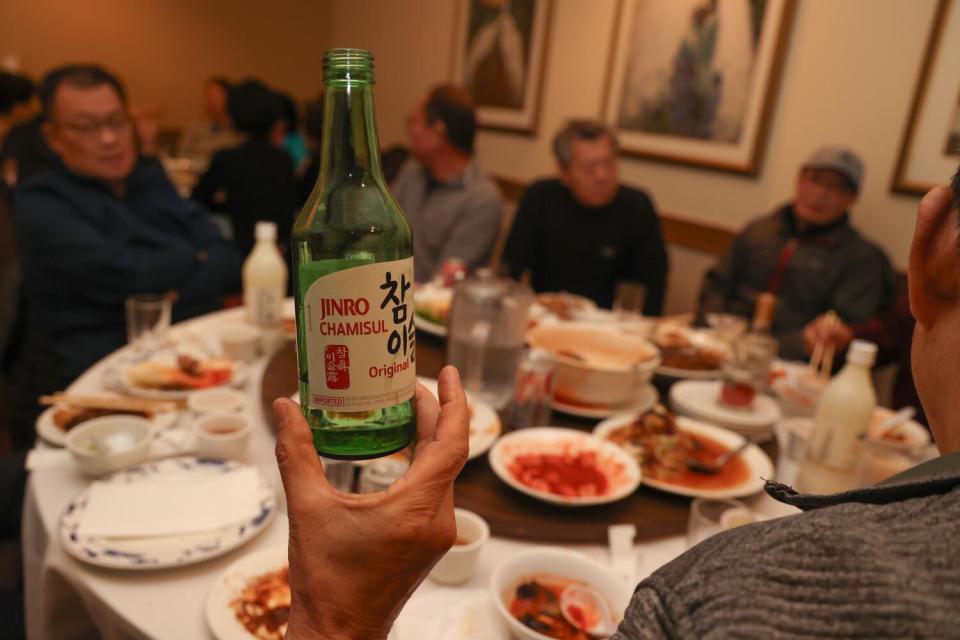
Hobin Chang, who owns the Korean-Chinese restaurant Young King in Koreatown, said he has similar recruiting issues.
"It's difficult, but we do manage to find, for example, some people from Hong Kong and China who live in L.A., and we train them," Chang said.
The Dragon originally was slated to close last June but stayed open largely to keep the staff of about 20 employed, Choi said.
Choi said he feels terrible about closing the restaurant and leaving the workers without jobs.
"I personally have so many memories at this restaurant," he said. "This is where my parents and my wife's parents officially met before we got married in 2001."
The staff hoped the restaurant would move to another location, but Choi said a large space suitable for traditional Korean celebrations would be prohibitively expensive.
"Without the large size and special spaces to host events, it wouldn't be the Dragon anymore," Choi said. "It would just be another Chinese restaurant. We could find any small place to continue the restaurant, but it would lose its meaning."
Peter Nam, 68, has been coming to the Dragon since he arrived in L.A. from South Korea in 1982. Every second Saturday of the month, he dines there with a group of about 10 friends.
"It’s a very sad feeling, because I’ve been coming here for over 40 years,” Nam said as he finished off a plate of sweet and spicy shrimp during his final dinner at the Dragon. “We’ve been talking about what the next restaurant will be where we can all gather, but we’re not so sure.”
As the St. Agnes church group wound down their dinner, Joanne Lee passed around a second round of freshly cut Korean pear, pushing aside half-finished plates of jajangmyeon and seafood soup.
"We have to find another place for our gatherings, but it's hard to find a place that suits a large group and has as good service as the Dragon," said Lee, 70. “They even let us bring our own dessert and alcohol into the restaurant because we are so familiar with the staff."
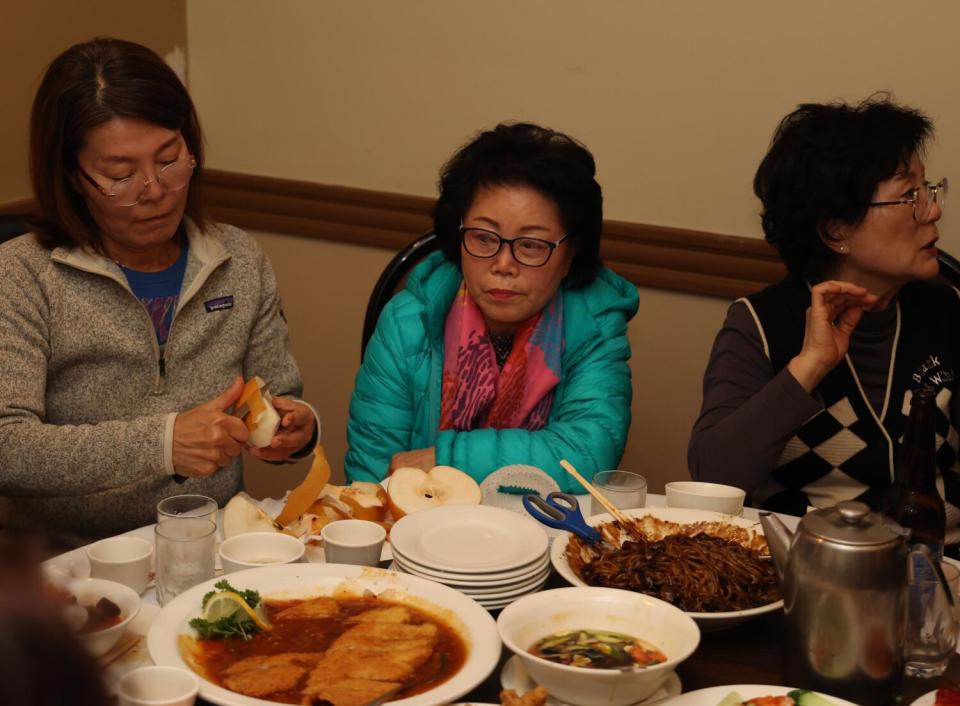
In Korean, aswiwo means sadness, pity and disappointment all in one — an apt description for how customers felt during the Dragon's final days.
"Aswiwo, aswiwo," Lee and several friends said, all shaking their heads.
This story originally appeared in Los Angeles Times.


